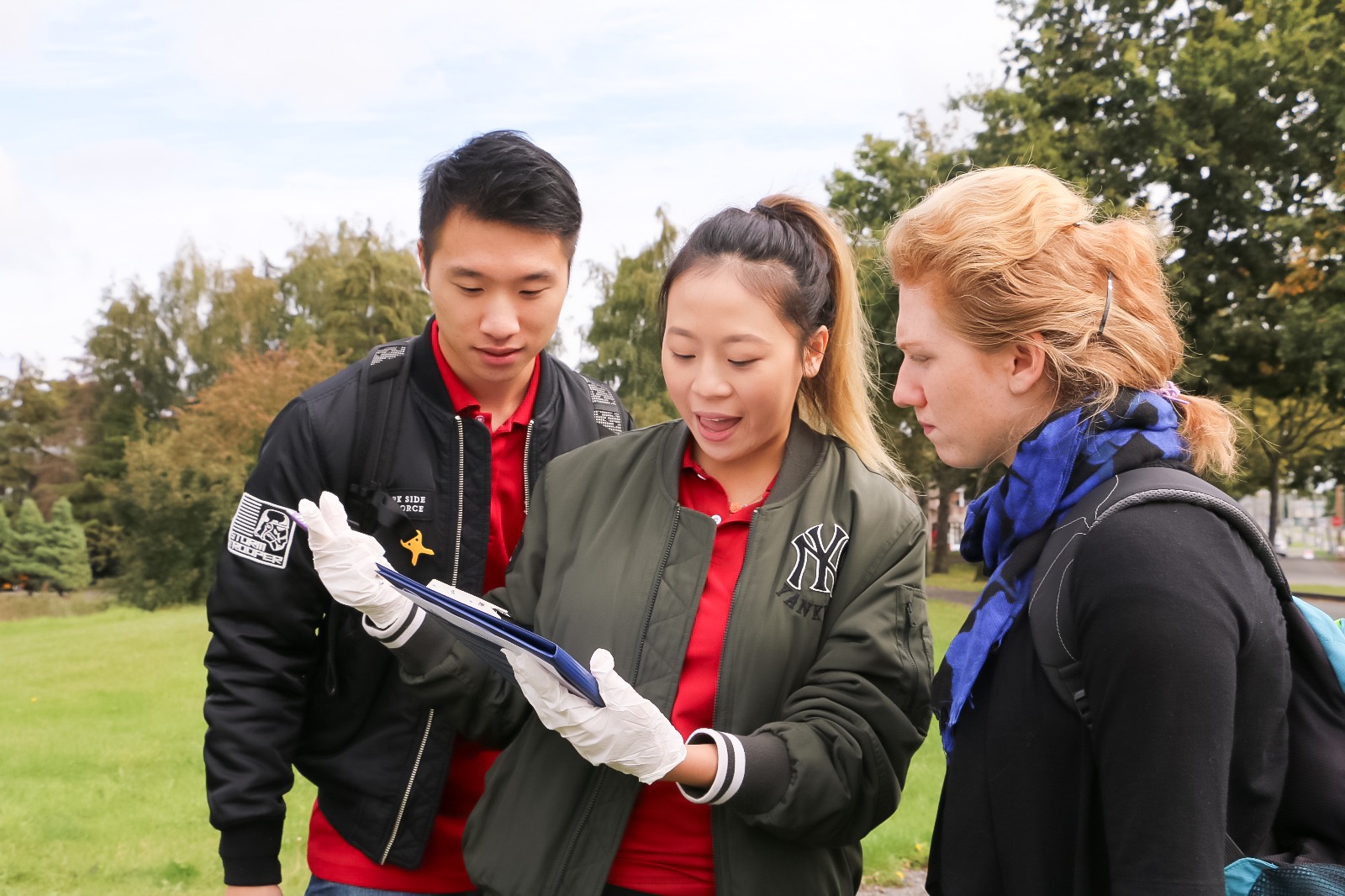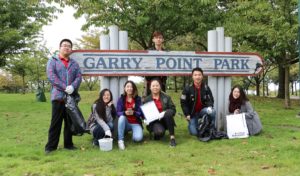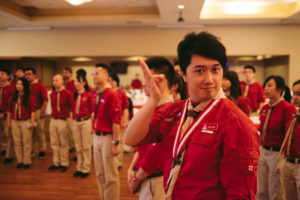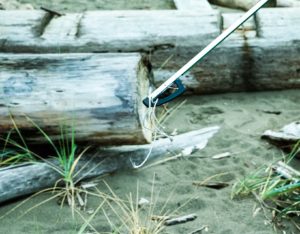By Brian Asin

Cleaning our local shorelines has never been easier! Just ask the Scouts.
Scouting and shoreline cleanups almost go hand in hand! In fact, it’s the norm for Scout groups to host annual shoreline cleanup days in their communities. Scouts get their first exposure to sustainable practices through our Beaver and Cub programs, for children between the ages of 5-12 years old. Beyond learning proper garbage disposal habits, they see for themselves how easily you can make a difference by spreading the word. They get a great hands-on learning experience, and carry on these values as they grow up.
Our Rover Crew (a scout group for youth aged between 18 and 26) focuses on two ideas: developing the youth, and regularly doing community service. Scouts in our youth program develop the soft skills of leadership and project management by creating community service projects and executing them properly. We aim to create a growing positive influence on the community by challenging our youth to apply these skills to causes that matter, and always aim to get as many people as possible involved.
Last month we held our annual shoreline cleanup at Garry Point Park. We asked Tina Liao, a Rover Scout taking on this cleanup as her first project, about her experience registering with the Great Canadian Shoreline Cleanup:
Brian: How easy is it to register a group for a cleanup? And what was the process like?
Tina: It was my first event, so I learned a lot about project management. Since it was a fairly simple project, it was a nice way of getting my foot in the door. I registered our

group with The Great Canadian Shoreline Cleanup, choosing an available location (Garry Point Park), and I filled out their summary card. On their website, they provide a lot of helpful details that go through step-by-step of organizing the cleanup. Their safety information was a big help as well.
Tina emphasized that all the resources provided on The Great Canadian Shoreline Cleanup website made her job managing this project easy and safe to do. She got to see firsthand just how easy it is to gather a group of like-minded youth to clean up some bottles and make a difference.
We also sat down with Rover Crew Vice President, Victor Chan, to discuss his experiences with shoreline cleanups. Victor has been in Scouting practically his entire life, and is in-large part a reason why our Rover Crew will be an active participant of shoreline cleanups for a long time.

Brian: Give me a bit of background on your involvement with shoreline cleanups over the years. Would you say Scouting has gotten you more involved in shoreline cleanups
Victor: Yes, Scouting is probably the only reason why I know about the shoreline cleanups. As Scouts, we learn about Leave No Trace, which teaches us the principles to leave a place better than when you first found it.
In Vancouver, we have been fortunate to always have access to good municipal waste disposal systems, but when they’re not accessible, we tend to think “it’s okay if I drop this tissue paper on the ground once”. However, when thousands of people act like that, then it’s not just one tissue paper. That’s where I see shoreline cleanups to do a lot of good.
Brian: Has anything significantly changed at all about cleanup culture over the many years you have been involved?
Victor: The biggest change I’ve found is the variety of waste we find; in recent years, recreational drugs and smoking have become more prevalent, so we often find more needles and cigarette butts on the ground. Again, because the average Vancouverite is fortunate to have access to a diverse community, we also have access to a wider range of products that come with different packages. That, however, translates to an increased amount of plastics and synthetic materials that end up on the streets, in our parks, and along our coastline. With a full spectrum of waste, it becomes more important than ever for us to make a difference in our shoreline.
Brian: Would you say that, coming from a Scouting perspective, our Rover Crew has approached shoreline cleanups in a different way?
Victor: The Crew has completed several shoreline cleanups, and our approaches were to find niche areas to do our service to the community. For instance, instead of going to dykes and high-traffic locations, we tend to choose areas with fewer people. Even though there is less waste, these are often places overlooked because of low traffic, so we may find waste that could have been there for many more months.
It’s part of the Scouting mission to create a better world, and our Crew has thrived in completing many environmental stewardship projects in Canada and across the globe. I see our Crew to have longevity in contributing towards more shoreline cleanups, and in doing our part overall for the Metro Vancouver community.

What distinguishes our Rover Crew is that we are leadership and youth development oriented. This means that while we uphold the same values and promote environmental stewardship, most of our work goes toward the community service projects that we get our Rover Scouts to plan and lead. We really value the experience of project management, and believe that this is the most beneficial type of experience that youth of this age can get. For initiatives like the Great Canadian Shoreline Cleanup, this means that youth are not only getting involved as participants, but they are challenged as leaders and role models in their communities.
Please check out www.shorelinecleanup.ca to get involved in the shoreline cleanup community!
Also be sure to check out our website at www.pccrovers.com to get involved with project management and youth development.